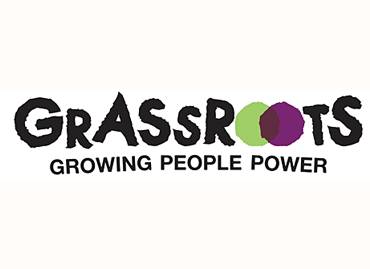Becky Wright is the Director of the TUC’s Organising Academy which is responsible for the development and delivery of the TUC’s training programme for union organisers and officers. She regularly blogs on Stronger Unions (www.strongerunions.org)
The local elections are over, France and Greece have seen people vote for an alternative and as pundits scramble to analyse and say what it all means, I want to take a step back and consider the role that organising and campaigning plays in building for change.
 Campaigning can be tricky. You have a position and you want someone else to agree with you. You try all manner of tactics to press your positions. Send out press releases and hope that there’s space in your local newspaper. The trudge can be relentless and sometimes no end in sight. Sometimes we win, sometimes we don’t.
Campaigning can be tricky. You have a position and you want someone else to agree with you. You try all manner of tactics to press your positions. Send out press releases and hope that there’s space in your local newspaper. The trudge can be relentless and sometimes no end in sight. Sometimes we win, sometimes we don’t.
But what happens when the dust has settled and the campaigning is over? What does it really mean to win or lose? In these times, that is the greatest challenge we face.
Whether it is for elections, for a plastic bag free area or for better, more equitable pay and conditions, we need to reorientate our view of success of campaigns to incorporate organising more fully.
By doing that, we move away from gimmicks, from relaunches and branding for its own sake. To win on the issue is important, but equally so is building a sustainable grassroots who continue to campaign, demand change and build for it.
What am I talking about when I talk about organising? In the trade union movement, we debate about what it means for us to organise, and I’m not here to be prescriptive on how others view it, but to explain how I view campaigning is also to talk about my approach to organising. For me, organising is about empowerment and hunger for change; creating a sustainable organisation that can weather success and failure. To do that, we need to work on the issues that people care about, stand up for our values and, crucially, deploy our resources in the most effective way possible. Campaigns can rise and fall, but people and their power remains if we organise rather than just campaign.
How do we move from purely campaigning to organising?
- Pick the right issue. Talk about it in the way that is understandable to a lot of people and relates to our core values.
- Engage and involve people at every step of the campaign. Think about how you build teams; step back as much as possible and let others take ownership of the campaign. I can get some press if people are mobilise for the day, but we’re going to change the world if we organise for the long term.
- Be ready to learn. A key element of our ability to be successful when organising is our readiness to learn from others, to look outside our world and be humbled and to recognise we don’t always have the answers. The flip side to this is our willingness to share successes and failures with others.
Despite, being an organiser and campaigner for many years, I’m still in a process of learning which is why I’m excited about our conference on 26 May called Grassroots. It brings together a wide range of organisations and activists who are looking to learn from each other, challenge perceptions and be as effective as we can. We’re going to hear new approaches to strategy and tactics, good ways to communicate and lastly how we are going to organise meaningfully.
In focussing on organising in our campaigns, I’m going to amend a well known phrase: Never doubt that a small group of thoughtful, committed citizens can change the world, but lets make that small group as big as we can.
Grassroots is being held at the TUC, Congress House, Great Russell St, London on 26 May. To register go to www.grassrootsuk.org.uk/register-to-come



0 Comments
You can be the first one to leave a comment.